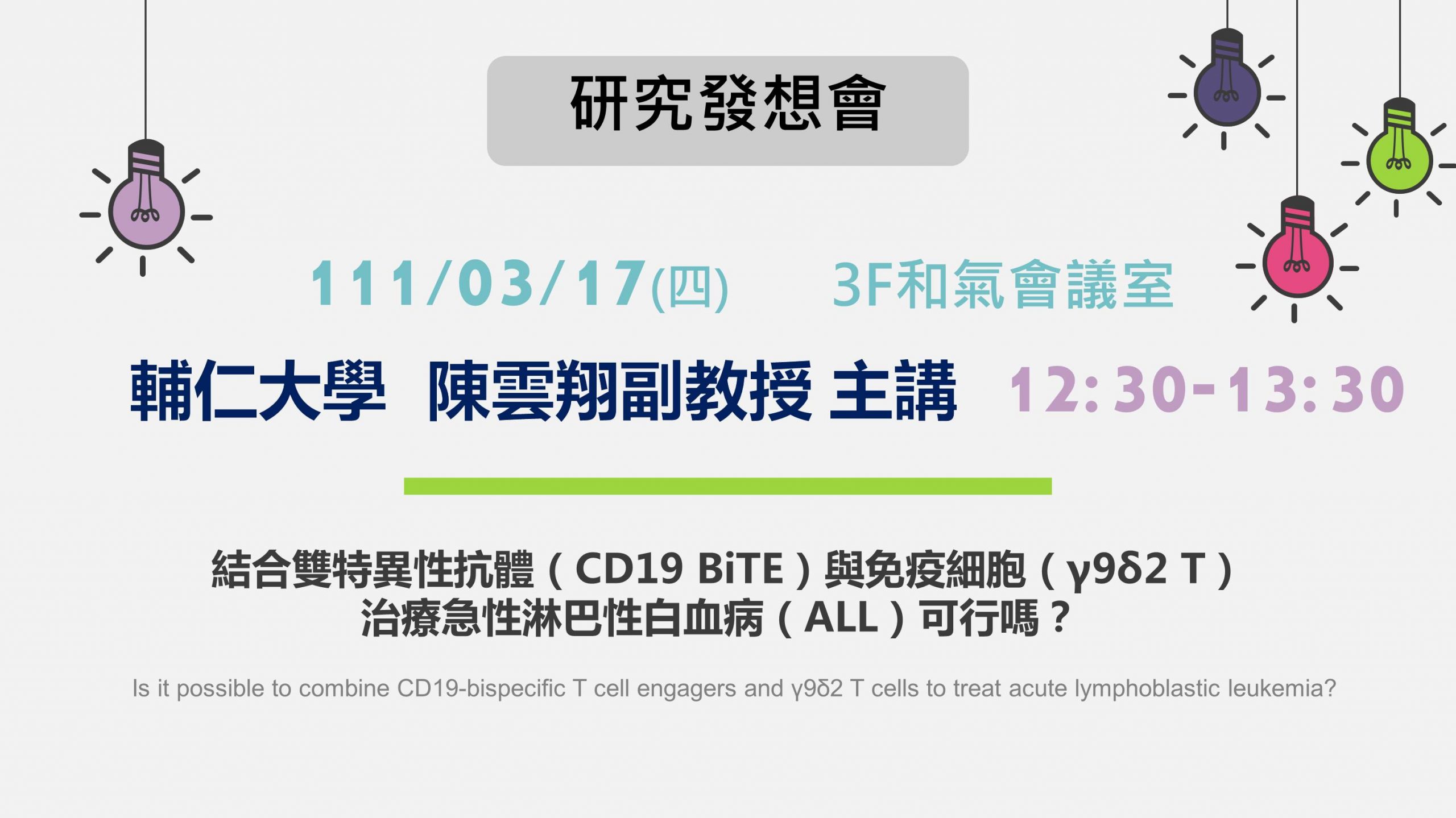111年3月17日(四)12:30於3樓和氣會議室舉辦「研究發想會」,由輔仁大學生命科學系陳雲翔副教授主講「結合雙特異性抗體(CD19 BiTE)與免疫細胞(γ9δ2 T)治療急性淋巴性白血病(ALL)可行嗎?」,歡迎有興趣的同仁前往聆聽。
本次講座摘要:
Blinatumomab, a bispecific T cell engager (BiTER) antibody targeting CD19 and CD3ε, can redirect T cells toward CD19-positive tumor cells and has been approved to treat relapsed/ refractory B-cell acute lymphoblastic leukemia (R/R B-ALL). However, chemotherapeutic regimens can severely reduce T cells’ number and cytotoxic function, leading to an inadequate response to blinatumomab treatment in patients. In addition, it was reported that a substantial portion of R/R B-ALL patients failing blinatumomab treatment had extramedullary disease, indicating the poor ability of blinatumomab in treating extramedullary disease. In this study, we investigated whether the adoptive transfer of ex vivo expanded γ9δ2 T cells could act as the effector of blinatumomab to enhance blinatumomab’s antitumor activity against B-cell malignancies in vivo. Repeated infusion of blinatumomab and human γ9δ2 T cells led to more prolonged survival than that of blinatumomab or human γ9δ2 T cells alone in the mice xenografted with Raji cells. Furthermore, adoptive transfer of γ9δ2 T cells reduced tumor mass outside the bone marrow, indicating the potential of γ9δ2 T cells to eradicate extramedullary disease. Our results suggest that the addition of γ9δ2 T cells to the blinatumomab treatment regimens could be an effective approach to enhancing blinatumomab’s therapeutic efficacy. The concept of this strategy may also be applied to other antigen-specific BiTE therapies for other malignancies.

